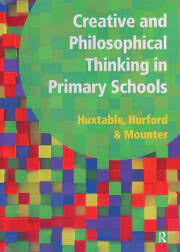Introduction
In recent years, there has been a significant shift in the educational paradigm which acknowledges the importance of creative and philosophical thinking in primary schools. As the landscape of knowledge and innovation continues to evolve, it has become increasingly crucial to introduce students to the foundational skills that support intellectual growth, critical thinking, and effective problem-solving.
This article delves into the significance of fostering creative and philosophical thinking among primary school students, the various approaches schools can take, and the resulting positive outcomes from such initiatives.
Understanding Creative and Philosophical Thinking
Creative thinking refers to the process of developing original ideas through the synthesis or modification of existing information and concepts. On the other hand, philosophical thinking focuses on the iteration of logical reasoning and argumentation skills through which students examine complex concepts, including ethics, values, reality, human emotions, self-awareness, and existence.
Both these forms of thinking play a crucial role in a child’s intellectual development. They build cognitive abilities that allow young learners to question prevailing norms, think critically about novel situations, adapt to their dynamic environment more efficiently and devise innovative solutions to challenges.
Introducing Creative and Philosophical Thinking in Primary Schools
1. Inquiry-Based Learning – This approach encourages students to engage with open-ended questions that provoke their curiosity. It emphasizes active participation from students who construct knowledge by exploring answers rather than passively receiving information.
2. Collaborative Projects – Children can be given opportunities to collaborate on projects that require brainstorming or conflict resolution. Through teamwork, they develop social skills and explore different perspectives effectively leading to creative outcomes.
3. Storytelling and Creative Writing – Encouraging children to tell stories or write creatively can enhance their language skills while simultaneously engaging them in imaginative exercises.
4. Philosophy for Children (P4C) – P4C is an educational movement which fosters critical thinking through engaging primary school students in philosophical discussions. it encourages kids to think deeply, reason logically and express their thoughts about various abstract concepts.
Benefits of Creative and Philosophical Thinking in Primary Schools
1. Enhanced Problem-Solving Skills – The ability to think creatively and philosophically helps children solve complex problems by understanding different perspectives and exploring alternative solutions.
2. Improved Academic Performance – Studies have shown that students who engage in creative and philosophical activities perform better in other academic areas, including mathematics, language, and science.
3. Emotional Resilience – Taking part in reflective discussions about philosophical matters can provide children with emotional resilience and self-awareness.
4. Better Adaptability – Creative and philosophical thinking enables children to be flexible thinkers, quickly adapting to change without any difficulty.
Conclusion
By integrating creative and philosophical thinking into primary school curricula, educators can stimulate young minds to question assumptions, think critically, develop empathy, become effective problem solvers and seize the opportunities presented by a rapidly changing world. Furthermore, this comprehensive development ensures that a generation of well-rounded individuals emerge capable of facing various personal, social, and global challenges.





